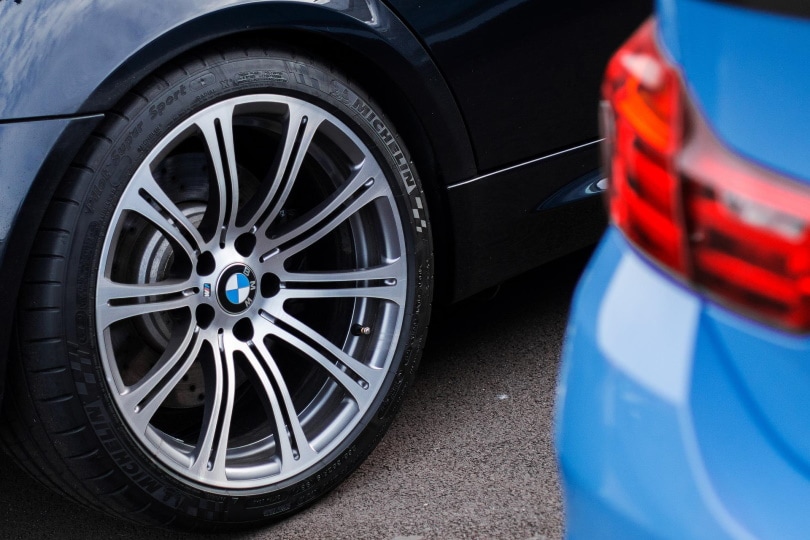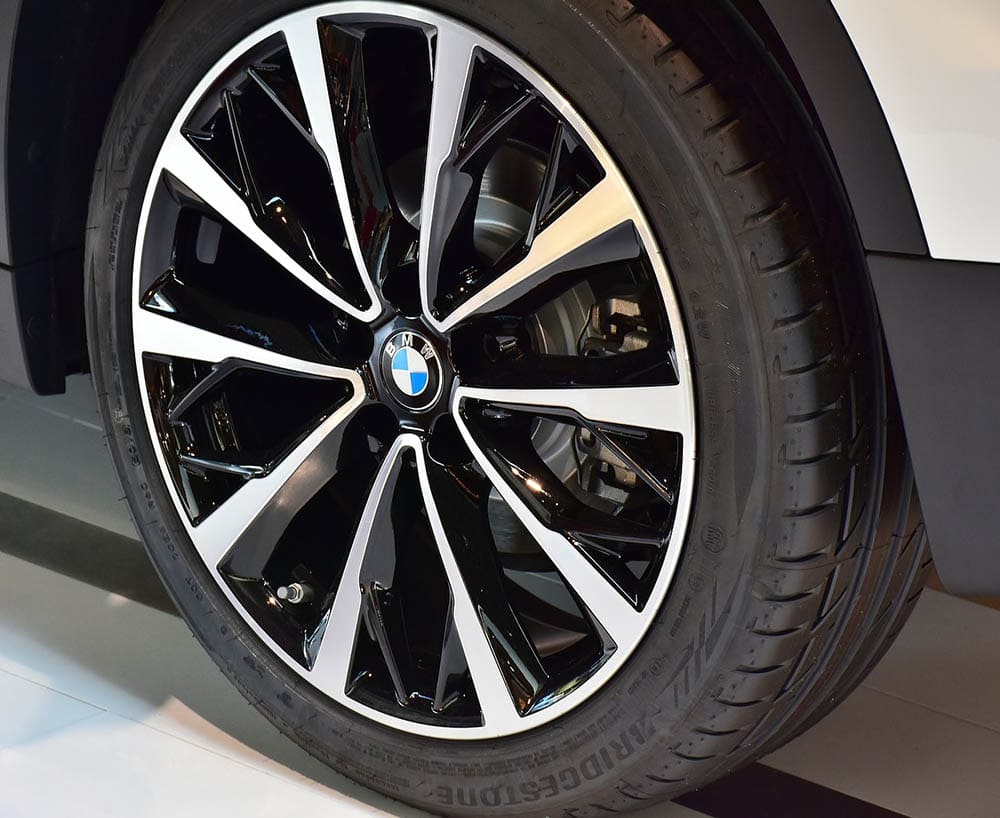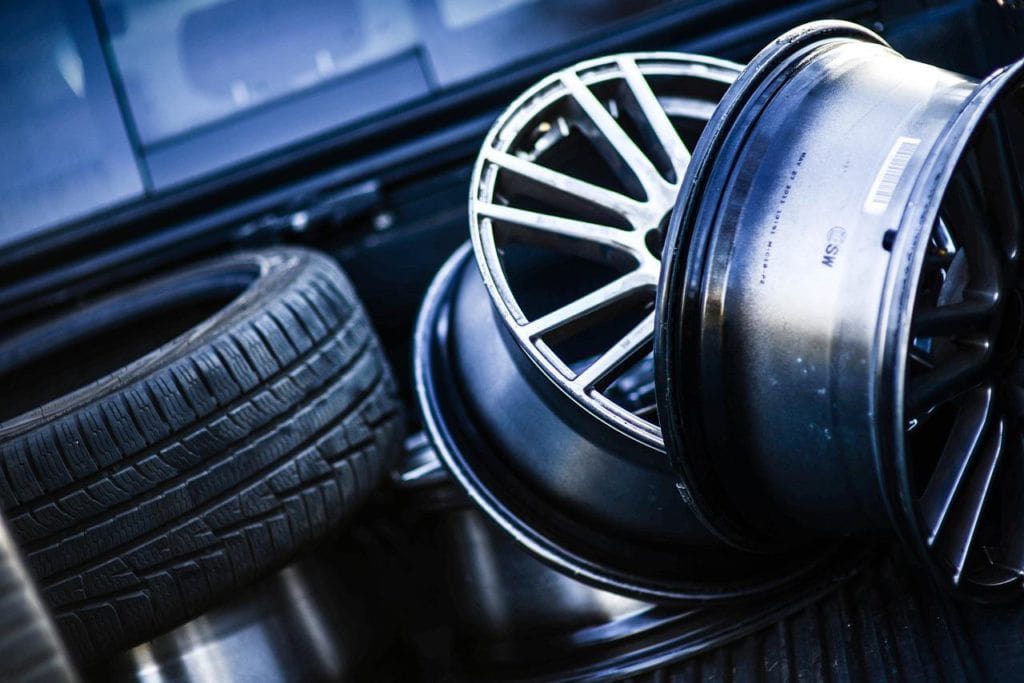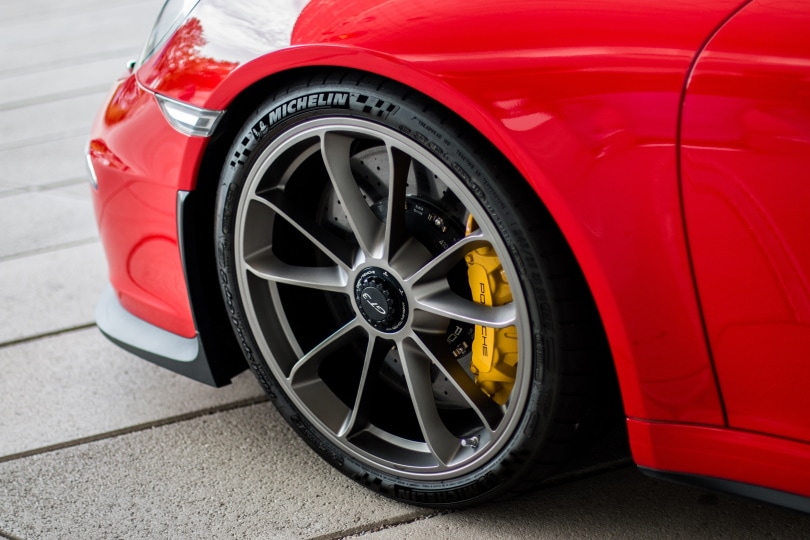What Are Alloy Wheels? Pros, Cons & FAQs
-
Pete Ortiz
- Last updated:

Up until fairly recently, all car wheels were made from steel, as this was both strong and affordable. Alloy wheels, often referred to as “mag” wheels, have become a popular alternative in recent years. Alloy wheels are typically manufactured using magnesium or aluminum alloy, and sometimes both, making them both strong and lightweight. There are also several other advantages of using alloy wheels on your vehicle. Read on below to find out more.
Alloy vs Steel Wheels
Although steel wheels are beneficial due to their strength and durability, alloy wheels have better performance and appearance. Because alloy wheels are typically magnesium, nickel, or aluminum, they possess all the benefits of steel wheels, but they’re lighter and provide quicker stopping and acceleration.

Also, due to their lightness, there is less strain on the vehicle’s suspension, and due to the materials, these wheels are better at dissipating heat from the car’s brakes than steel wheels. Also, since these materials are easier to work with than steel, alloy wheels come in various shapes, sizes, and finishes, making it convenient for people who want to add that extra finishing touch to their car.
Below, you can see a list of some of the biggest differences between alloy and steel wheels.
| Differences | Alloy wheels | Steel wheels |
| Options for spokes | Different varieties | Few options |
| Options for finish | ● Powder-coated
● Chrome ● Painted ● PDV ● Bare polished ● Machined ● Clear-coated |
● Powder-coated
● Chrome ● Painted ● Chrome-clad
|
| Durability of the finish | ● Impact-resistant
● Lightweight ● Can be susceptible to oxidation and scratching |
● Durable
● Damage resistant |
| Driving purpose | ● Urban, rural, mountain, off-road
● Spirited driving ● Show and custom vehicles ● Cars with performance tires |
● Commuting during all seasons
● Recreational vehicles for off-roading ● Driving in heavy snow ● Work trucks
|
| Fuel efficiency | Much better fuel efficiency because of the lighter weight | Good |
Benefits of Alloy Wheels
Although you should already see some of the benefits of alloy wheels, we wanted to discuss them even further, so check them out below.

Appearance and visual appeal
One of the biggest benefits consumers praise alloy wheels for is their appearance and visual appeal. They have more variations in shapes and finishes than steel wheels, and they will surely make your vehicle stand out from the crowd. Also, alloy wheels will increase your car’s value due to their unique appearance.
Lightness
Although alloy wheels are the same size as steel wheels, they are much lighter in weight, increasing their performance. Also, since they are lighter, your vehicle will be easier to maneuver and handle. Your car will also manage varying terrain much better as alloy wheels provide a better grip on the car’s suspension system.
Heat conduction
Alloy wheels are better at dissipating and conducting heat than steel wheels. Because of that, the wear and tear on your tires will be lower than usual, as tires typically wear out when in contact with heat.
Rust and corrosion resistance
Alloy wheels are rust and corrosion resistant due to the technology and materials manufacturers use during their creation. While steel wheels can rust and develop corrosion, that won’t happen with aluminum and magnesium alloy wheels. They’re a bit more expensive than steel wheels, but at least you won’t have to spend too much money on their maintenance.

Braking
Alloy wheels decrease unsprung weight, leading to better traction and overall better braking functionality. Because of that, typical issues like brake failure are less common in cars with alloy wheels.
Fuel Economy
Since alloy wheels are light, they will allow your vehicle to perform better and enable you to handle the car easily. That’s why alloy wheels increase your fuel economy and help you spend less money on fuel.
Disadvantages of Alloy Wheels
Although alloy wheels sound perfect, there are still a couple of disadvantages you should have in mind before purchasing them for your vehicle.

Durability
Although alloy wheels are quite durable, they are not as durable as steel wheels, and they are more prone to damage while driving. Depending on the terrain, your alloy wheels could crack or bend due to the driving conditions. Even if they don’t suffer such severe damage, you could still be looking at cosmetic damage that will need repair over time.
Price
Another disadvantage that stands out is the price of alloy wheels. Even though they are high-quality, alloy wheels tend to be much more expensive, especially when you compare their price with steel wheels. That’s why alloy wheels are more common among people with luxurious or high-performance cars.
 Conclusion
Conclusion
Overall, alloy wheels are very convenient, and if you want to increase the performance and driveability of your car, you should try them out. Before purchasing alloy wheels, ensure that they are suitable for your vehicle and that you can afford all the potential maintenance costs, as they can add up pretty quickly.
Featured Image Credit: Toby Parsons, Pixabay
Contents


